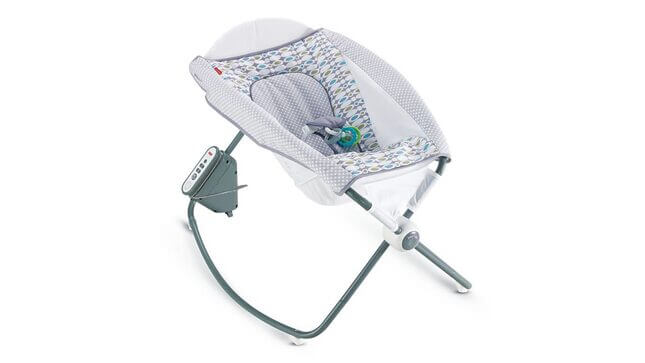The Fisher-Price Rock 'n Play Recall Speaks to Parental Desperation, Not Just Lack of Awareness
Latest

A few days ago, a friend of mine with a newborn texted to ask if she could chuck the Rock ‘n Play I’d handed down to her into the trash. She had just gotten word of Fisher-Price’s massive recall of its “Sleepers.” I had not. I began Googling feverishly, reading about the 32 infant deaths, some due to asphyxia, with a hand clutched to my mouth.
But here’s the thing: It was not news to me that this product posed a potential safety risk, nor was it to my friend, who was about to try to figure out whether that hulking piece of plastic would fit into her trash bin. We had both used it—or planned to use it—sparingly, and with great caution and limitation, despite the potential risks. The reason being parental desperation, of the anticipatory and actual variety.
Early last week, the Academy of Pediatrics (AAP) called for the recall of all Rock ‘n Play Sleepers, calling them “deadly.” On Friday, the U.S. Consumer Product Safety Commission officially issued the recall of nearly 5 million products. This might seem sudden, especially for a product beloved by parents since 2009, but the AAP has long warned against allowing babies to sleep in inclined devices, including Rock ‘n Plays, as well as car seats, because of the risk of suffocation.
-

-

-

-

-

-

-

-

-

-

-

-

-

-

-

-

-

-

-

-

-

-

-

-

-

-

-

-

-

-

-

-

-

-

-

-

-

-

-

-








































